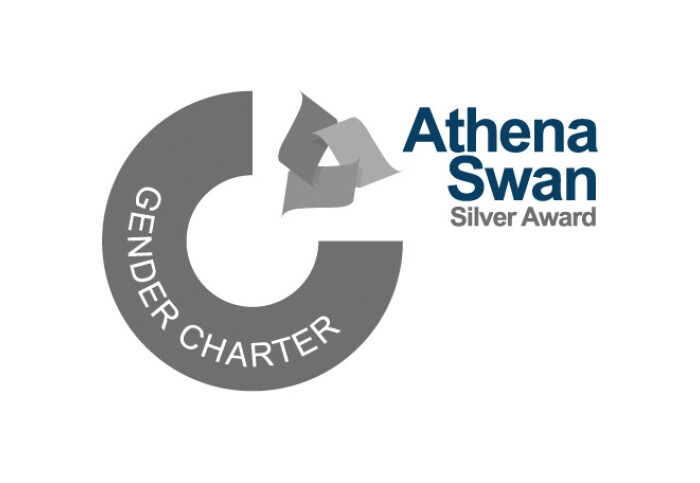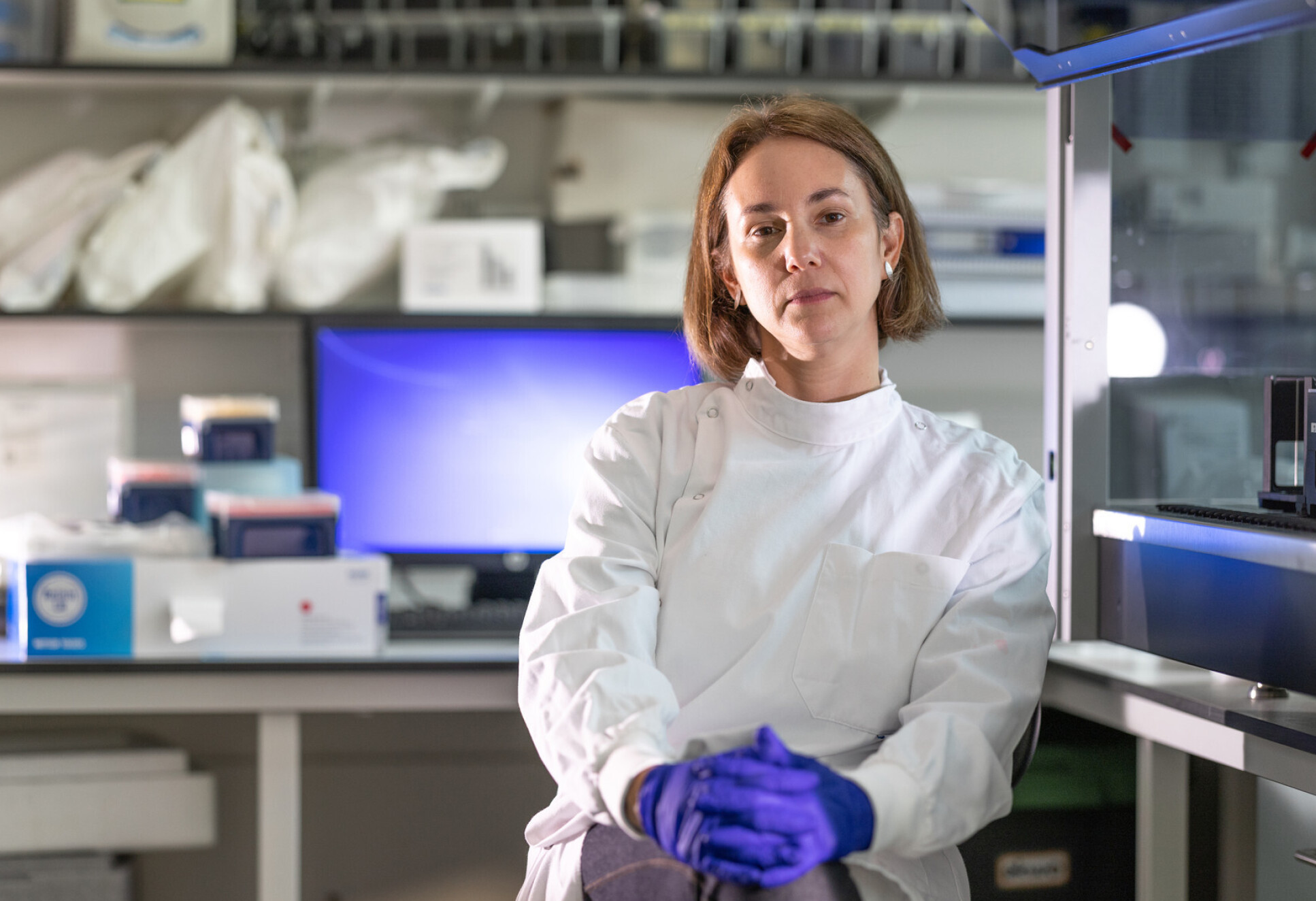Department of Life Sciences celebrates Athena SWAN Silver Award

The Department of Life Sciences has received the prestigious Athena SWAN Silver Award for its commitment to gender equality.
The Department’s submission was led by Dr Cris Banks-Leite (Athena Swan Lead) and Dr Josh Hodge (Chair of the Equality, Diversity & Inclusion Committee) and input was sought from staff and students across the department.
"We are absolutely thrilled that our hard work was formally recognised by Advance HE. This was truly a team effort with over 50 people involved and an impressive willingness from everyone to provide data, access to resources, and to change practices". Dr Cris Banks-Leite Athena SWAN Lead
The Athena SWAN Charter is a framework which is used across the globe to support and transform gender equality within higher education and research. Established in 2005 to encourage and recognise commitment to advancing the careers of women in science, technology, engineering, maths and medicine (STEMM) employment, the Charter is now being used across the globe to address gender equality more broadly, and not just barriers to progression that affect women.
Advance higher education members can apply for institutional and departmental Athena SWAN awards recognising their gender equality efforts.
Life Sciences achieved its Athena SWAN Silver award for the first time in May 2024, following Bronze awards in 2011, 2015 and 2019.

Dr Banks-Leite said: ‘We are absolutely thrilled that our hard work was formally recognised by Advance HE. This was truly a team effort with over 50 people involved and an impressive willingness from everyone to provide data, access to resources, and to change practices. The fact we had such a remarkable result shows just how much everyone engaged with an open-mindedness and positivity. I thoroughly enjoyed this role!’
Dr Hodge said: ‘We are incredibly proud of this achievement as it recognises and celebrates the years of EDI work that has happened within the Department. I want to thank every member of the EDI committee, the former Culture Committee and those from the Department who engaged with the surveys and focus groups as you were all integral in evaluating the previous action plan and shaping the five-year action plan. We are excited to be entering the cycle and want to encourage anyone and everyone interested in EDI work to join in!”
The path to Silver
There is much inequity in academia, and our department is not immune to it. When we started work towards the Athena Swan report, only 17% of academics were women which our analyses suggested this was a result of a decades of unbalanced gender ratio in hiring outcomes. Considering we had several positions advertised for new academic recruits, we targeted hiring practices as the main mechanism to improve gender ratio in DoLS.
Some of the new recruitment practices we introduced include: (1) a long-listing approach, as an intermediary step between analysing CVs and interviews. This long-listing stage allowed committees to make better informed decisions as to who should be short-listed. Candidates rank pre and post long-listing were not correlated and crucially it increased the proportion of women through interview stages. (2) providing a 7-minute crash-course on sources, manifestations and solutions for gender biases during recruitment and (3) including an EDI observer at all interviews. While this increased workload, it is undeniable that we were able to hire truly outstanding candidates, regardless of gender. Nonetheless, 78% of recruits were women, bringing the number of academic women in DoLS to 28%.
Life Sciences also improved the gender ratio of PhD students (bringing it to the national benchmark of 60%) and importantly dramatically increased the support for undergraduate and postgraduate students. The work of Clara Bradberry, Student Experience Officer, was mentioned by the Advance HE panel as one of the highlights of our submission.
What’s next
Following the award the department is keen not to rest on its laurels but to continue its work to improve the way we value and support women’s careers and improve culture across the department.
We still has a lower proportion of women at senior levels (Reader and Professor). We are committed to improving this, and we will also expand the recruitment practices revamp to the Research and Teaching and Learning job families, which also show some level of gender disparity. We have looked closely into the PTO job families but there weren’t clear signs of disparity, we will however continue to monitor.
We will also work to improve clarity of promotion criteria, decision making and of workload issues, improved feedback and mentoring for PG students, and we will work with HR to provide further support for cases of bullying and harassment.
'This is a wonderful step forward for our whole department, students and staff alike, recognising that we are making progress! This endeavour is hugely important to me personally. Equality couldn’t be more vital for our Department." Dr Dan Davis Head of Department, Life Sciences
Professor Dan Davis, Head of Life Sciences, said: ‘I am thrilled that we have just been awarded the SILVER Athena SWAN Award. This success is essentially down to our brilliant Athena SWAN Lead, Dr Cris Banks-Leite, and our Equality, Diversity and Inclusion Chair, Dr Josh Hodge, plus everyone on the committee, everyone who commented on the application, and importantly, everyone who worked hard implementing our new policies and practices in recruitment, promotions and other things.
 Of course, the award doesn’t mean we have full gender equality yet. In fact, we now have a challenging action plan to implement in the coming years. But already this is a wonderful step forward for our whole department, students and staff alike, recognising that we are making progress in this! This endeavour is hugely important to me personally. Equality couldn’t be more vital for our Department.’
Of course, the award doesn’t mean we have full gender equality yet. In fact, we now have a challenging action plan to implement in the coming years. But already this is a wonderful step forward for our whole department, students and staff alike, recognising that we are making progress in this! This endeavour is hugely important to me personally. Equality couldn’t be more vital for our Department.’
Article text (excluding photos or graphics) © Imperial College London.
Photos and graphics subject to third party copyright used with permission or © Imperial College London.
Reporter
Emily Govan
Department of Life Sciences
Cristina Banks-Leite
Department of Life Sciences (Silwood Park)